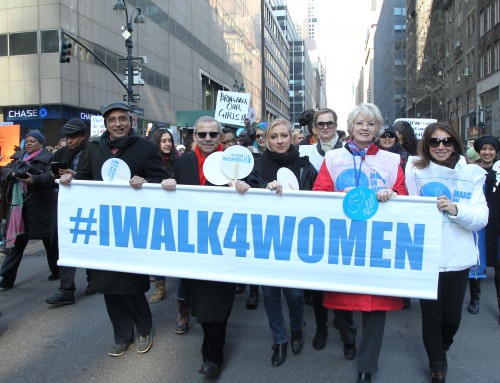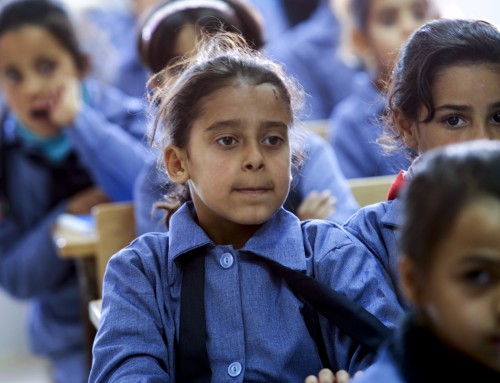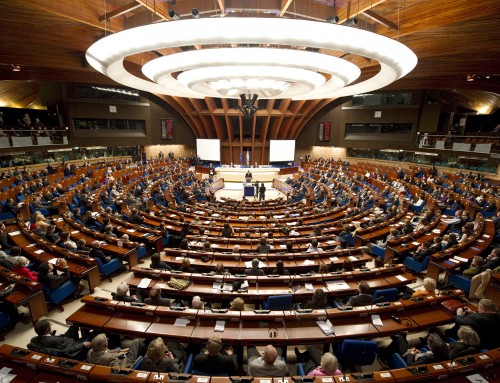Project Description
Qatar has enshrined the rule of law and human rights in its Constitution and national strategic frameworks. It has also enacted a range of laws aimed at strengthening human rights and the judicial system, including judicial independence.
Summary of national best practices
Following are the best practices adopted by Qatar with regard to the rule of law, in accordance on General Assembly resolution 67/1, which was adopted on 24 September 2012.
With regard to Qatar’s commitment to the purposes of the United Nations, justice and building an international system founded on the rule of law:
• Under the Qatar National Vision 2030, the rule of law is at the core of the social contract between the State and individuals under its jurisdiction.
• Qatar believes that all individuals, institutions and entities, including the State itself, are accountable under the legislation in force, which is applicable to all without distinction and subject to an independent judiciary.
• At the international level, Qatar believes that international law and the rule of international law are a source of stability, security and safety for the international community; no world Power or organization can achieve peace and security without adhering to the provisions and principles of international law and the rule of law. (Part I, article 1)
With regard to enshrining and protecting human rights in the Constitution and legislation in force in Qatar:
• Qatar has enacted a range of laws to promote human rights. A considerable number of laws exist to ensure the fair treatment of all groups of society, particularly women, children and persons with special needs.
• Qatar has also acceded to several international human rights instruments.
• Qatar has integrated international covenants on the human rights (of both sexes) to which it is party into its domestic legal system, so that such covenants have the force of law and become binding on ministries and Government and non-governmental institutions, including the judiciary.
• A number of Governmental and non-governmental institutions have been established to promote and protect those rights, as well as several official and private institutions to ensure compliance with the relevant legislation (Part I, articles 6, 16 and 17)
With regard to the relationship between the rule of law and sustainable development:
• The Qatar Vision 2030 is the strategy that underpins the future development of human rights in the country. Furthermore, the National Development Strategy 2011-2016 contains high-priority national programmes to protect and strengthen human rights.
• Qatar firmly believes that, in order to achieve sustainable development in any form, it is necessary to adopt a broad definition of the rule of law such that it covers economic and social aspects. Accordingly, Qatar has focused on four aspects in its Vision 2030:
o Economic development
o Human development
o Environmental development
o Social development
• Qatar believes that the relationship between sustainable development and the rule of law must be established at the State, regional and international levels, in order to foster the education and health sectors for all and allow them to flourish, and to protect children, youth and women.
• With respect to education, health, culture and sport, Qatar is focusing on a policy of human development and investment in human beings, because it believes that the human being is the most valuable resource by which development success can be measured in a country. Qatar has also adopted a policy of long-term investment in order to guarantee current and future generations a life of dignity.
With regard to the rule of law at the international level, Qatar stresses that it is necessary to strengthen the foundations and rule of international law, given that it is a source of stability, security and safety for all peoples of the world, which, in turn, constitute the foundation of the international community. No Power, regardless of its greatness, or international organization, regardless of its prerogative, can bring about peace and security unless it adheres to international law. (Part I, article 7)
National institutions are responsible for all matters pertaining to the rule of law and for strengthening justice and security institutions, in order to enable all people to have recourse to those institutions and ensure that the needs of all individuals are met.
• The institutional framework for crime prevention and criminal justice in Qatar is composed of the traditional Government authorities and non-governmental institutions, the latter including:
o The Rule of Law Centre
o The Qatar Foundation for Combating Human Trafficking
o The National Human Rights Committee
• With regard to matters pertaining to the rule of law, the national authorities adhere to the following principles:
o The separation of powers;
o The authorities must abide by the Constitution and refrain from enacting laws that violate its provisions;
o The State is subject to the law;
o Legal hierarchy;
o The equality of individuals and protecting their rights and freedoms (Part I, article 11)
With regard to the provision of public services relating to the rule of law, including criminal, civil and administrative justice, settling of commercial disputes and providing legal assistance in an effective, just, equitable and non-discriminatory manner:
• Articles 4 to 13 of Law No. 10 (2003) on the judiciary establish a comprehensive court hierarchy of all levels and types. Those articles also set out the structure of the courts and their areas of competence.
• Article 15 of that Law provides that the defendant has a right to a public trial in accordance with international fair trial standards. Confidential sessions may also be held at the discretion of the court or at the request of one of the parties.
• Under article 4 of the above-mentioned Law, the court system in Qatar consists of the Court of Cassation, courts of appeals and courts of first instance. Each court has the competence to rule on matters brought before it in accordance with the law.
• Article 2 of Law No. 7 (2007) on the resolution of administrative disputes provides that courts of first instance shall establish one or more administrative chambers, with each chamber having three judges. Those chambers alone shall be competent to consider the administrative disputes specified in the present Law. The aim of those provisions is to guarantee swift and accessible justice in specialized cases, without prejudice to the regular judicial system.
• Articles 12 to 17 of Law No. 12 (2008) on the establishment of a Supreme Constitutional Court establish the competence of the Court to consider the constitutionality of laws and regulations. However, that Court is not yet operational. (Part I, article 12)
The independence of the judiciary is guaranteed by the law. Following are some of the most important domestic laws in that regard:
• The Constitution provides that judges are independent and their rulings are subject only to the law. No entity shall interfere in cases or impede the course of justice.
• Article 134 of the Constitution safeguards the integrity and impartiality of judges. To that end, it provides that judges may be removed only in those situations set forth in the law. The law also set outs provisions specific to judges and the manner in which they may be disciplined.
• Article 2 of Law No. 10 (2003) on the judiciary affirms the independence of the judiciary. It provides that judges are independent and may be removed only in accordance with the law. It furthermore provides that judges’ independence may not be undermined and prohibits interference in matters of justice. (Part I, articles 12 and 13)
With regard to promoting compliance with international humanitarian law, Qatar is concerned at the challenges facing international humanitarian law during international and civil armed conflicts owing to the failure of the parties to such conflicts to comply with the 1949 Geneva Conventions and their Additional Protocols, which they had pledged to uphold and respect in all cases. Unfortunately, this situation has encouraged certain parties to commit more violations, including the use of chemical weapons and prohibited destructive weapons, in the knowledge that they are safe from prosecution. Qatar affirms that those concerned, however powerful they may be, must comply with the provisions of international humanitarian law, as that is the only way to ensure lasting respect for those laws. (Part I, article 20)
With regard to international cooperation based on the principle of shared responsibility for combating organized crime, Qatar emphasizes the importance of and strives to promote international cooperation in combating transnational organized crime, including money-laundering, trafficking in persons, trafficking in weapons and other forms of organized crime, which threatens national security and undermines efforts to achieve sustainable development and ensure respect for the law. (Part I, article 25)
Most important outcomes
Following are some of the most significant laws enacted by Qatar aimed at strengthening human rights:
• With regard to human freedoms, article 47 of the Permanent Constitution of Qatar, which was adopted on 8 June 2004 and entered into force on 9 June 2005, provides that freedom of opinion and expression is a fundamental human right, along with other fundamental freedoms, such as personal freedom, the right of citizens to vote and stand for office, freedom of association and the right to petition public authorities.
• With regard to the right to education, the adoption of Law No. 25 (2001) on compulsory education (right to education) helped to raise enrollment rates in primary education. In the period from 2006 to 2013, boys’ enrollment rate rose to 90 per cent. Girls’ enrollment rate in the education system also rose significantly and stood at 93.4 per cent in 2012. Those enrollment rates confirm that the State provides students of both sexes an equal opportunity to enroll in primary schools.
• With regard to the rights of persons with special needs, Law No. 2 of 2004 provides that, in addition to the other rights they enjoy under the law, persons with special needs shall enjoy additional rights, such as education, medical care, the right to obtain equipment suited to their needs, employment opportunities suited to their capabilities, accessible facilities in public places and the right to participate in taking decisions on matters that concern them. At its session on 25 March 2015, the Council of Ministers also approved a draft law on persons with disabilities. In accordance with the draft law, a national committee for persons with disabilities will be established pursuant to a decision of the Council of Ministers. A quota of no less than 2 per cent of all positions in the relevant entities shall be set aside for persons with disabilities. A committee of persons with special needs will also be formed to uphold the interests of that social group, defend its rights and act as its representative in all relevant matters.
• With regard to the rights of the child, Law No. 22 (2005) prohibits the employment or the participation of children in camel races and the training of children for that purpose.
• With regard to promoting and protecting the rights of women, empowering them to participate in all areas of society, guaranteeing their rights and preventing discrimination against them, Qatar has enacted the following legislation:
o Law No. 22 (2006) on the family (rights of women)
o Law No. 24 (2004) on retirement, as amended
o Law No. 14 (2004) on labour prohibits employing minors and women in occupations that are detrimental to their health and physical and mental well-being. The Law also ensures fair treatment of women and grants them equal pay and opportunities for promotion and training.
• In addition, Qatar established the following institutions to protect the rights of women:
o The Qatar Foundation for the Protection of Women and Children
o The Qatar Foundation for Combating Human Trafficking
o The Social Rehabilitation Centre
o The Qatar Foundation for Protection and Social Rehabilitation, a private institution for combating social problems
Note: Those institutions were recently integrated into a single institution known as the Qatar Foundation for Social Action
.
• In keeping with its concern for the right of all to obtain decent housing, Qatar enacted Law No. 2 (2007) on housing.
• In order to protect all persons from the crime human trafficking, Law No. 15 (2011) on combating trafficking in persons was promulgated.
• Law No. 7 (2013) on health insurance (the right to health) was enacted in order to provide basic health care for all persons in Qatar. The Law entered into force on 17 July 2013 and a complementary implementing regulation was issued. The Law provides for the establishment of a national health insurance company to administer and operate a compulsory national health insurance programme.
• Law No. 14 (2004) on labour guarantees the rights and responsibilities of workers and establishes their work hours, salaries and benefits.
• In addition to the above, the following draft laws are currently being developed:
o A draft law on children
o A draft law on domestic workers
o A draft law on the entry, exit and residency of migrant workers
• At the international level, there is constant communication between national human rights institutions and the United Nations treaty bodies.
• With regard to promoting compliance with the principles of international humanitarian law, Qatar has held a number of conferences, meetings and seminars in cooperation with the International Red Cross to review the status of international humanitarian law.
• The following provisions have been introduced to guarantee independence of the judiciary:
o All Government and other institutions must commit to respect and uphold the independence of the judiciary.
o The judiciary rules on cases brought before it without bias on the basis of the facts and in accordance with the law, and without any hindrance, undue influence or direct or indirect interference from any party.
o All matters of a judicial nature fall within the competence of the judiciary.
o Every person has the right to be tried by ordinary courts in accordance with established legal procedures.
o The State provides the human and material resources to enable the judiciary to properly fulfill its duties.
Qatar has made great strides in the area of judicial legislation, laws and mechanisms, and in the nature of relationship between judges and the authorities. It has strived to develop the judicial system so as to facilitate and expedite the judicial process, and to provide additional assurances in order to enforce justice and the rule of law.
• With regard to the question of crime prevention and criminal justice:
Qatar has an effective legislative framework for crime prevention and criminal justice that is founded on the following legislation:
The Permanent Constitution of Qatar
Legislation pertaining to preventing and prosecuting crime, including:
o Law No. 15 (2011) on trafficking in persons
o Law No. 1 (2006) on combating drugs and dangerous psychotropic substances and regulating their use and trade
o Law No. 3 (2004) on counter-terrorism
Qatar hosted the 13th United Nations Congress on Crime Prevention and Criminal Justice from 12 to 19 April 2015. Participants in the Congress included policymakers and crime prevention and criminal justice professionals. The main topic of the Conference was integrating crime prevention and criminal justice into the wider United Nations agenda to address social and economic challenges and to promote the rule of law at the national and international levels.
Lessons learned
• The concept of the rule of law was integrated into Qatar’s strategic development policies and is a fundamental element thereof.
• The primacy of the rule of law has been stressed on the ground, and the appropriate mindset is being shaped against a backdrop of long-term cultural shift for that purpose.
• The link between development and ensuring peace and security has been highlighted. Security and stability cannot be attained without achieving justice and the provision of the basic necessities of life.
• Integrating the principle of the rule of law, justice and security into the post-2015 development agenda has been underscored.
• The challenges facing today’s world have been taken into consideration in formulating a development strategy, with a view to achieving justice.
• Emphasis has been placed on the need to draw on the outcomes of international conferences on justice and development, particularly the United Nations Rule of Law Indicators, which were formulated by the 13th United Nations Congress on Crime Prevention and Criminal Justice, held in Qatar in April 2015.
• The country’s economy has been developed so as to create new employment opportunities and ensure comprehensive growth, given that the importance of the rule of law requires the diversification of the economy in order to provide opportunities for everyone; particular attention has been devoted and support given to the private sector, because it is one of the main sources of employment opportunities for all.
• There has been a focus on raising public awareness, with the participation of civil society, of United Nations standards on the rule of law and justice for all.
• It was affirmed that all perpetrators of contemporary forms of trafficking in persons must be prosecuted and punished.






